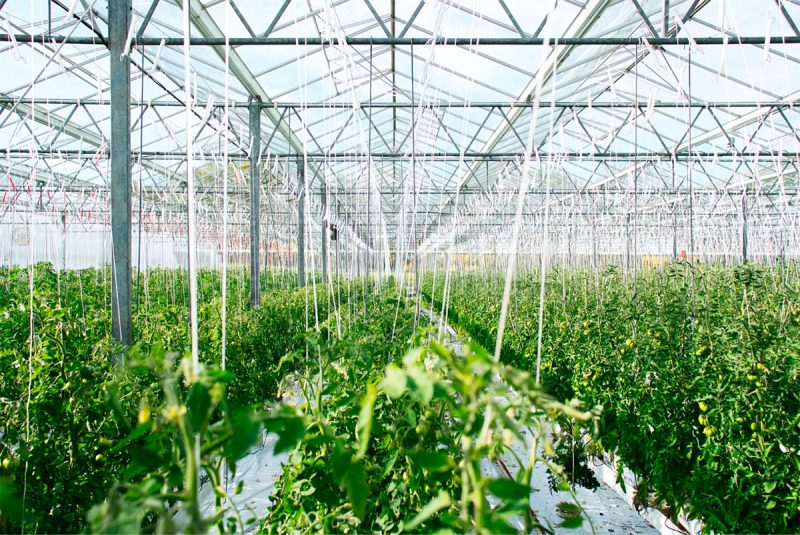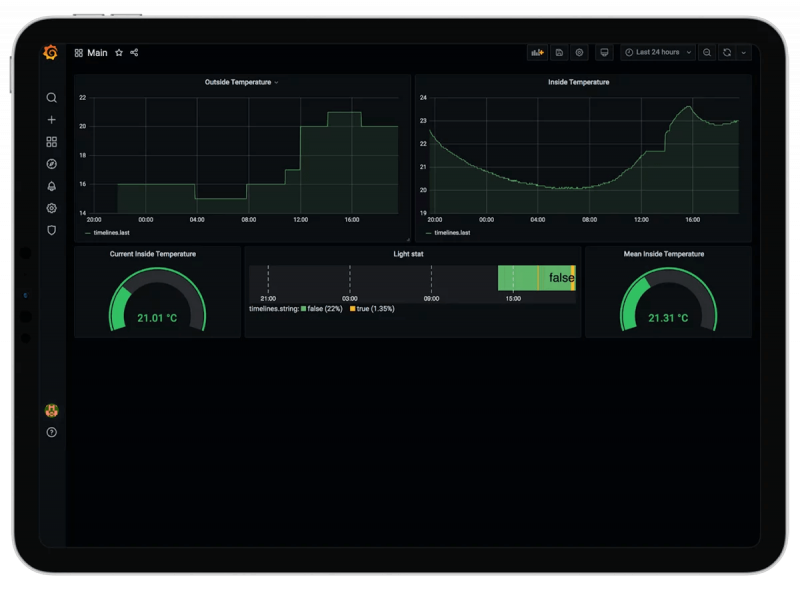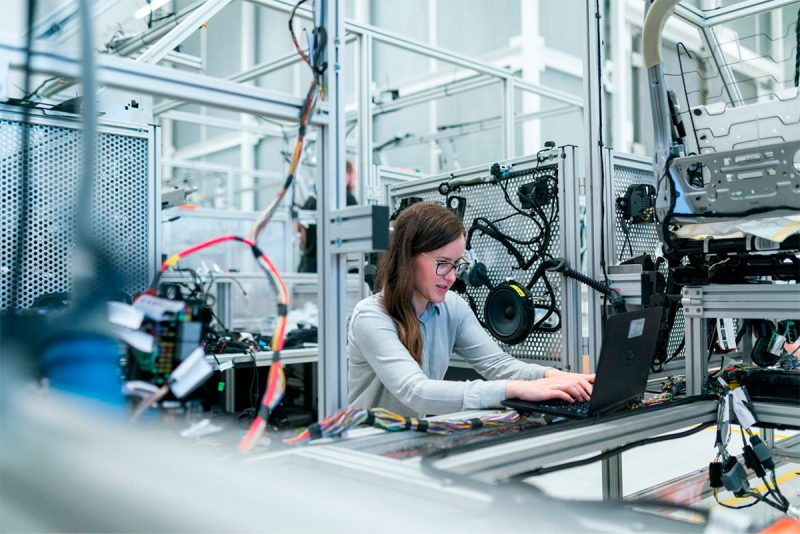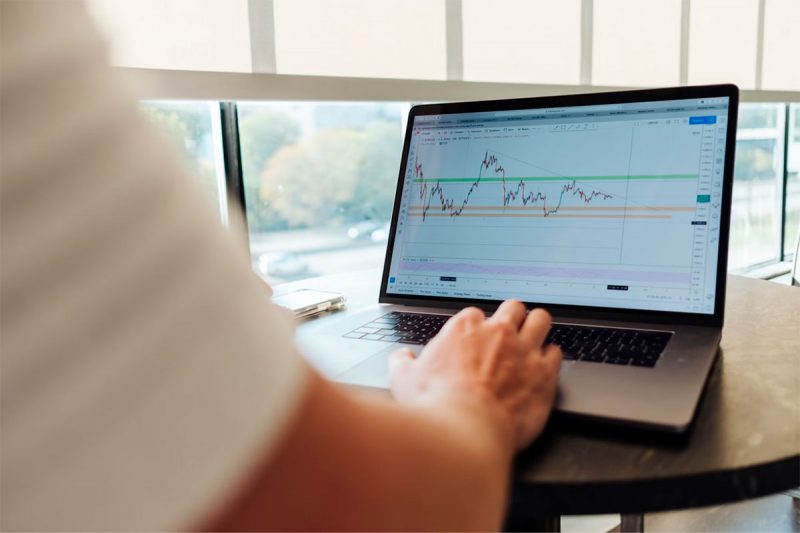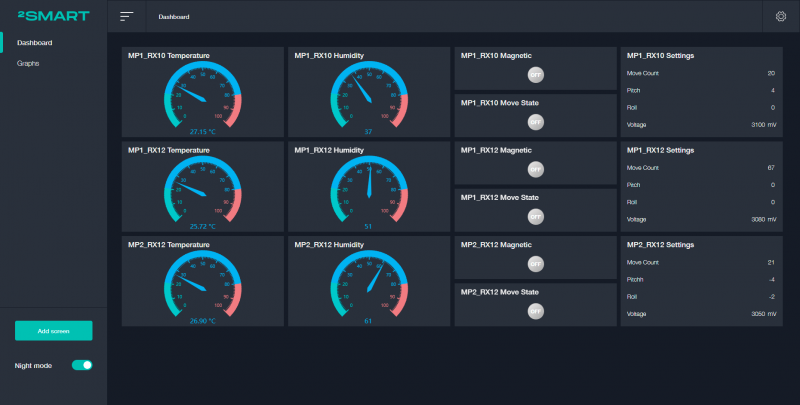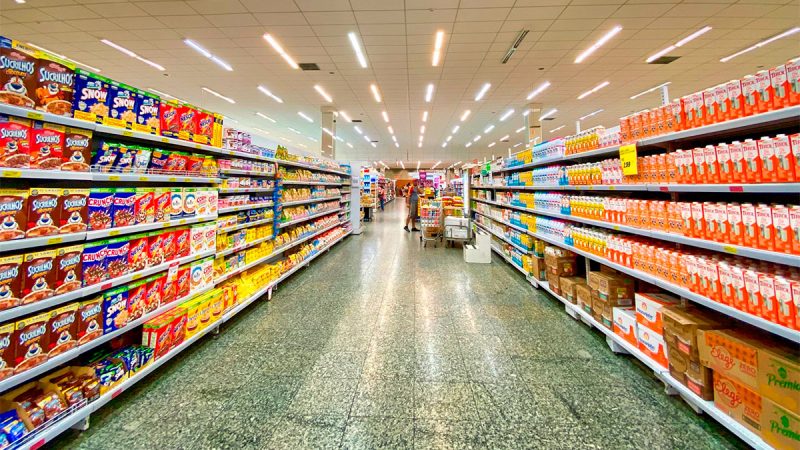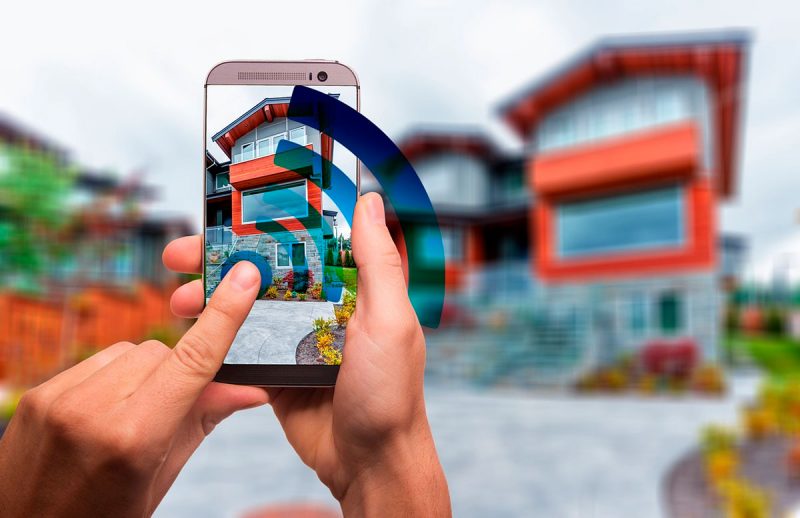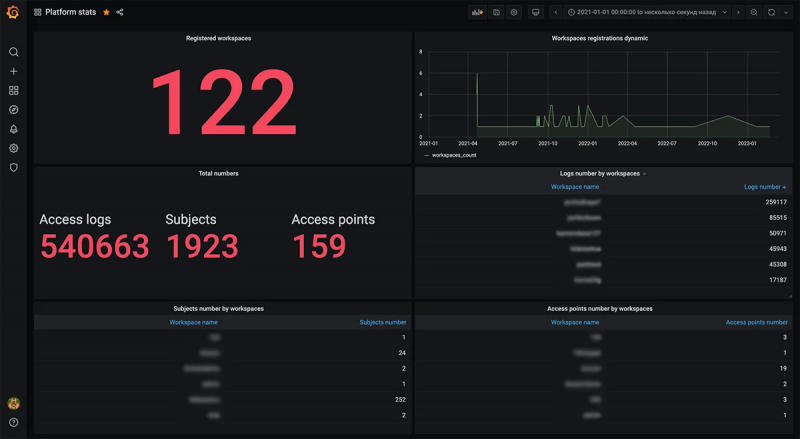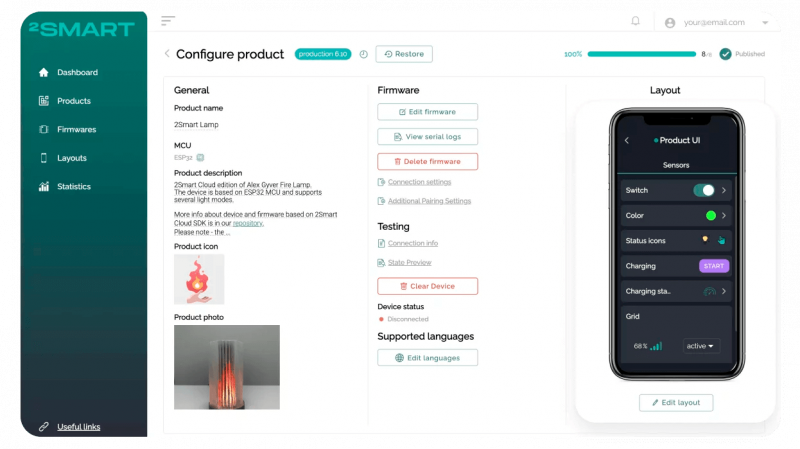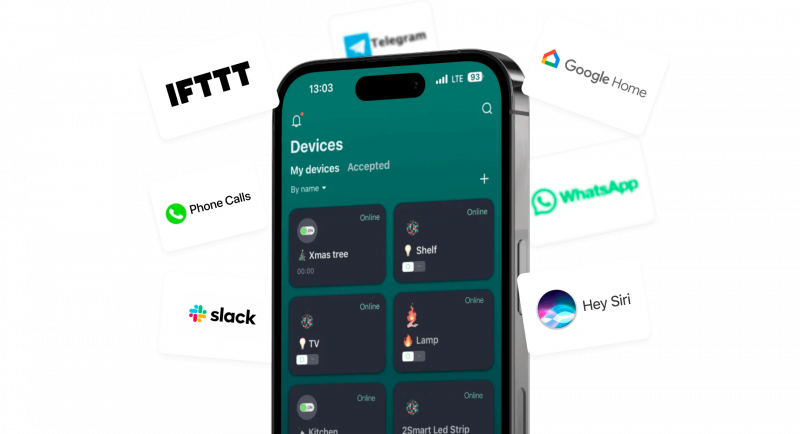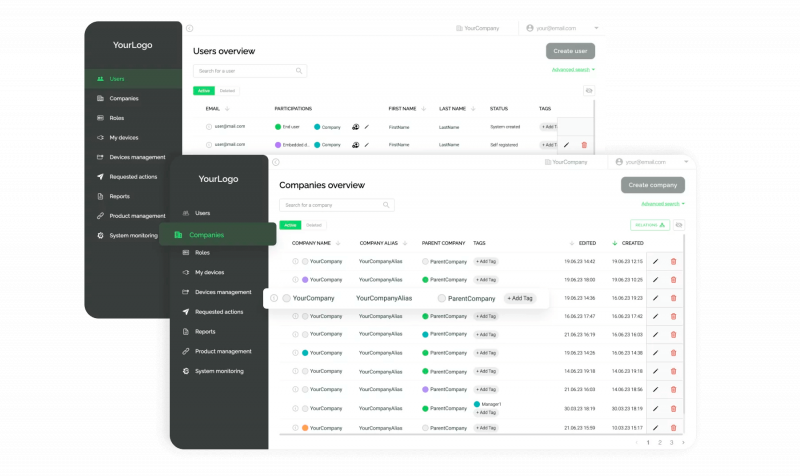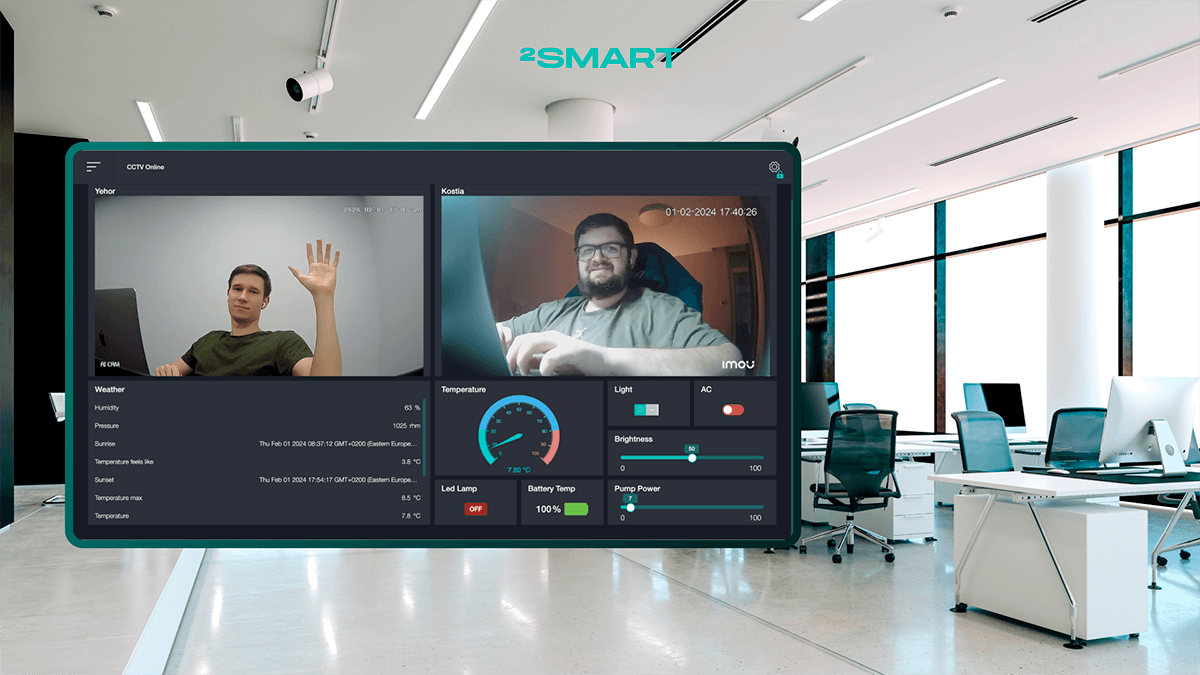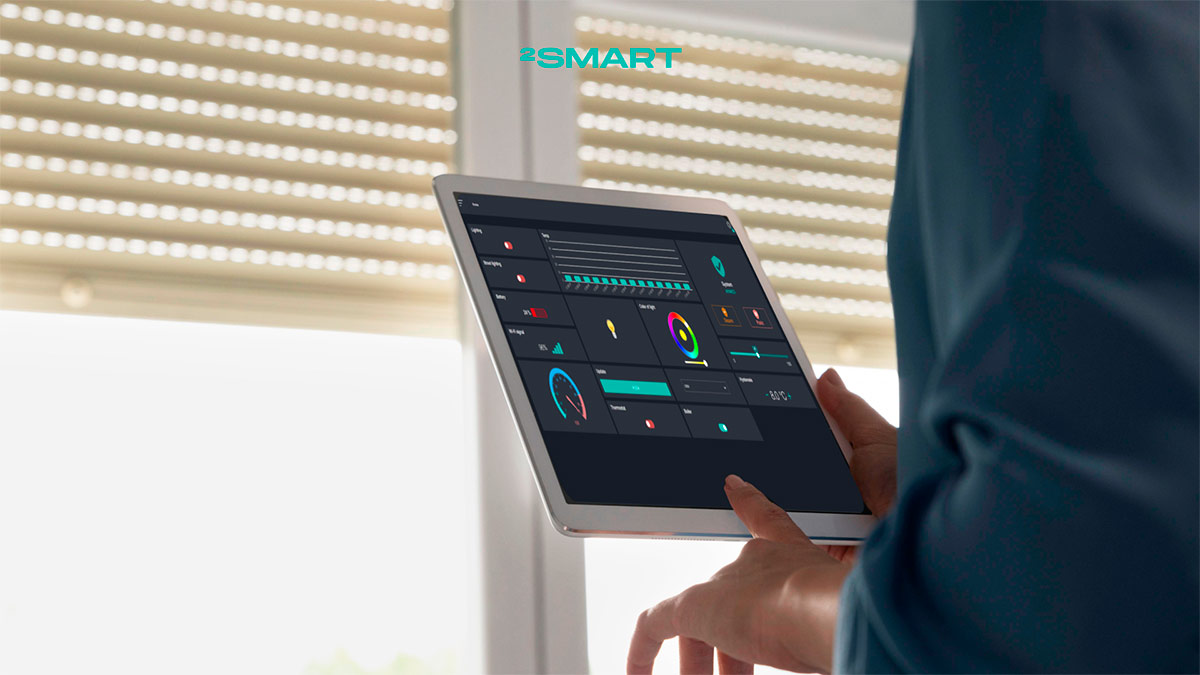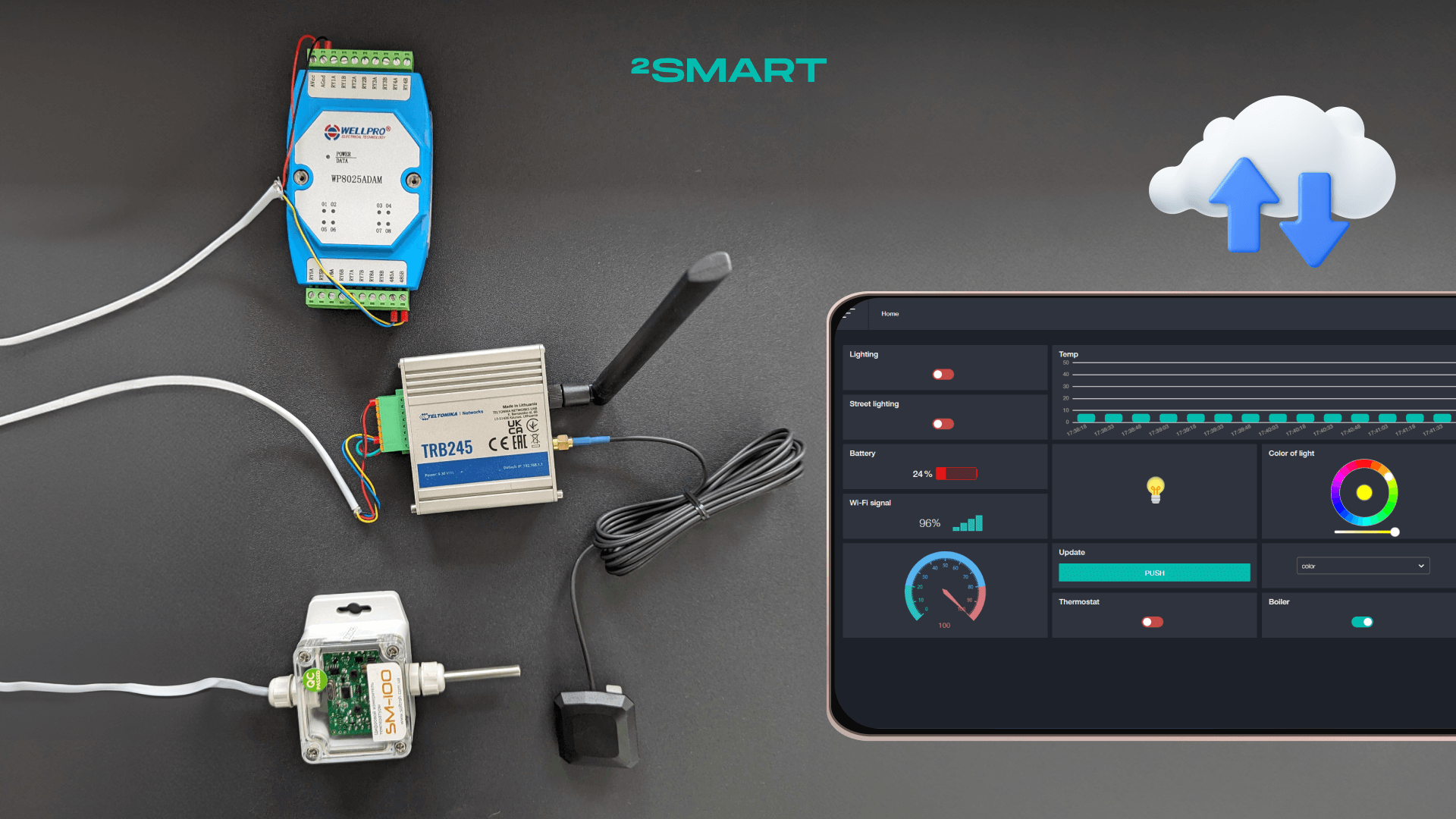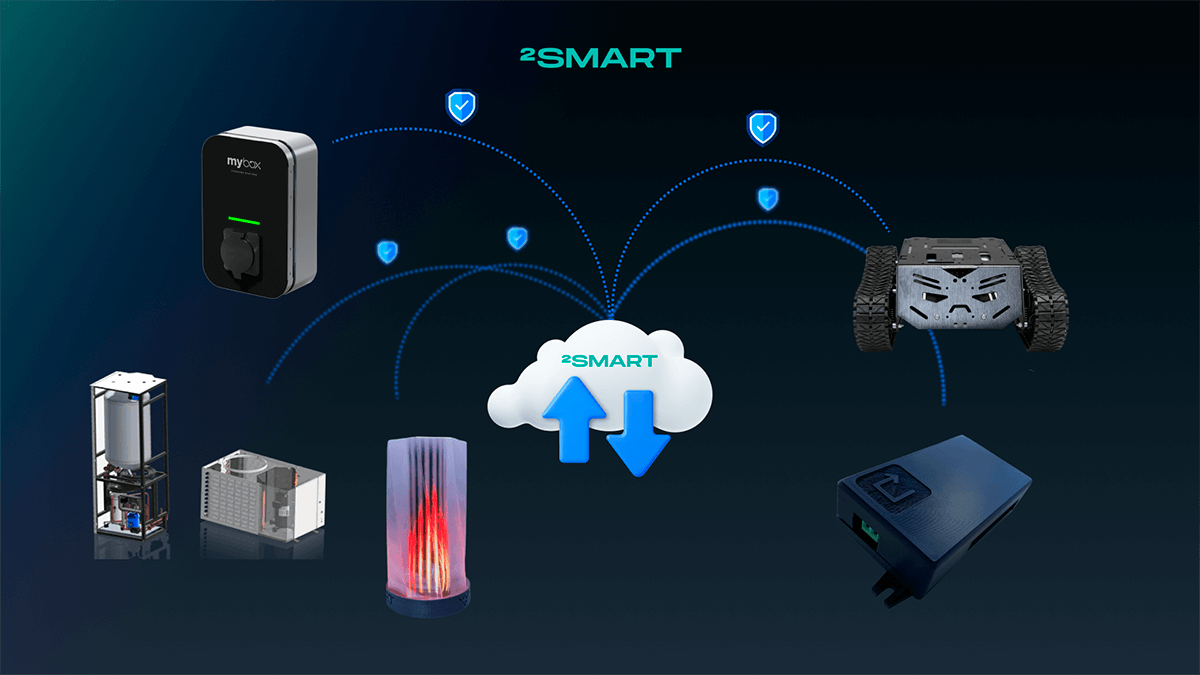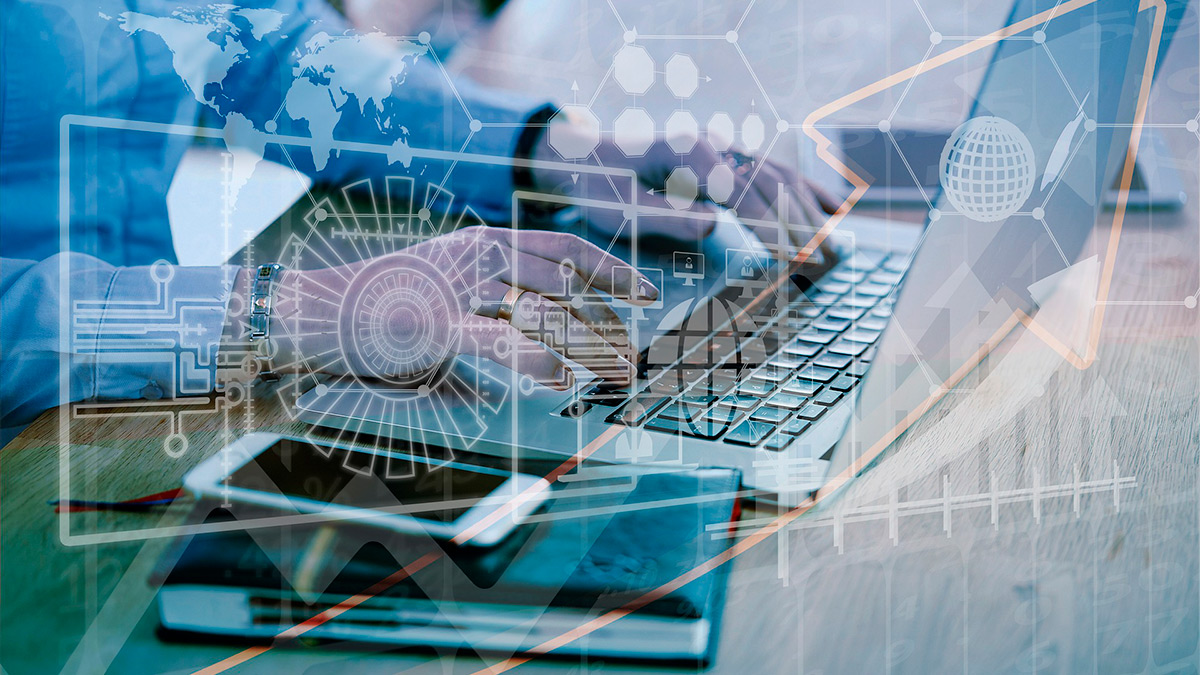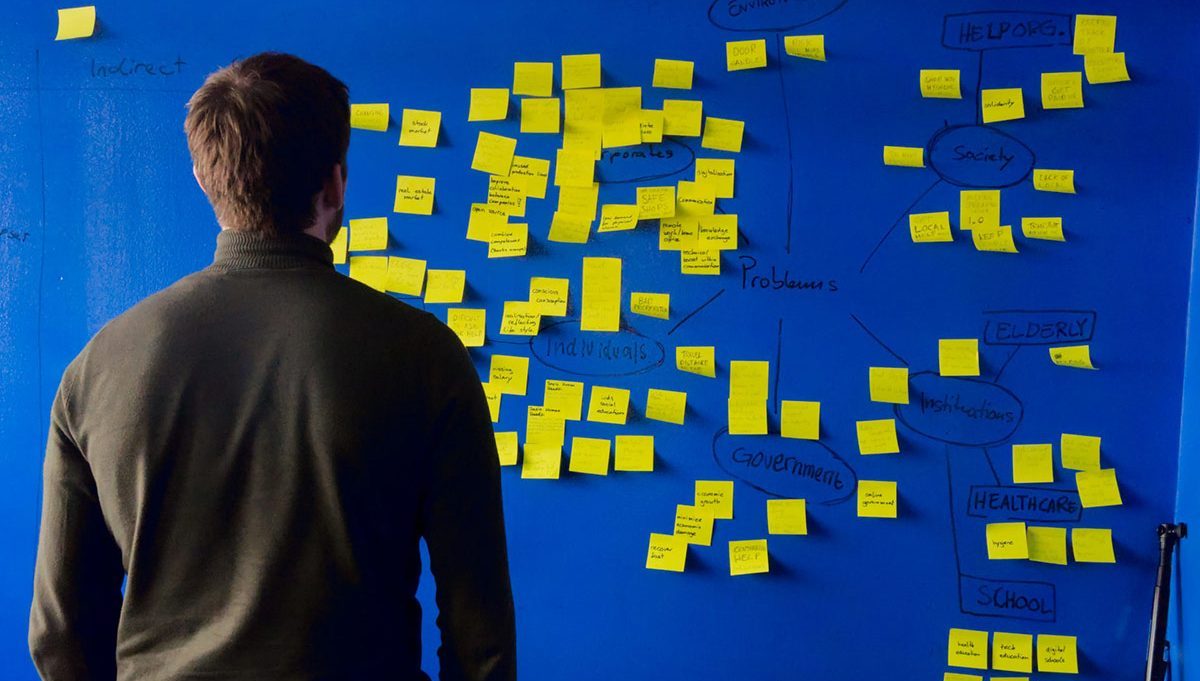Table of contents:
The Internet of Things (IoT) has emerged as a transformative force, revolutionizing the way industries operate and interact with their environments. At its core, IoT involves the interconnectivity of devices, enabling them to interact, collect data, and perform tasks autonomously. Machines have advanced in intelligence, enabling businesses to create additional value.
Thanks to the transformative technology of IoT, we all now live in a world where gadgets like kitchen appliances, cars, thermostats, and baby monitors seamlessly communicate.
In our reality, everyday items integrate into a digital symphony, fostering a collaborative harmony between the physical and digital realities. This evolution is powered by cloud solutions, cost-effective computing, big data analytics, and cutting-edge mobile technology.
Recently, IoT has joined big data at the summit of the hype cycle. The interconnected IoT ecosystem, with projected values reaching up to $15 trillion by the decade’s end, holds profound implications across sectors. It enhances efficiency, cuts costs, and unveils new possibilities for innovation. In our comprehensive exploration, we will dive deeper into the top 7 industries where IoT could be especially useful in 2024, drawing insights from real-world use cases.
Let’s collaborate
We’re empower your business with our technology expertise
TOP 7 Industries Where IoT Could Be Useful
1. Green Energy: Enhancing Sustainability via Smart Solutions for Electric Vehicles
The integration of the Internet of Things (IoT) in the Green Energy sector has boosted transformative changes, optimizing efficiency, sustainability, and user experience. Green energy, positioned at the forefront of enhancing sustainability, achieves this through various means, such as the integration of smart solutions for electric vehicles (EVs). As the world embraces a more eco-conscious approach, EVs present a promising way to reduce carbon footprints. It underscores the importance of EVs as a practical and eco-friendly choice in the broader context of global efforts to reduce carbon emissions and embrace environmentally responsible technologies.
The positive impact of IoT solutions and the Green Energy sector is clearly demonstrated in the case of the 2Smart platform solution for MyBox, a company specializing in the manufacturing and supply of EV charging stations.
MyBox faced the challenge of delivering a market-ready product, requiring the integration of a robust backend cloud infrastructure for operators and support teams. The 2Smart presented a microservices architecture based on Docker containers, enabling the swift and cost-effective development of a high-quality cloud platform for managing EV charging.
The impact of IoT in green energy, as demonstrated by MyBox’s case, is multifaceted. The platform allows for remote administration of thousands of private and public EV chargers, ensuring seamless operation and support. The symbiosis of IoT and green energy, with an example of the MyBox case and the 2Smart Cloud platform, signifies a paradigm shift in the electrification of transportation. The intelligent management and optimization facilitated by IoT technologies foster the growth of green energy while laying the groundwork for a more sustainable and interconnected future.
2. Agriculture: Smart Greenhouses and Beyond
The Internet of Things has a significant impact on agriculture, revolutionizing traditional farming practices and improving efficiency, productivity, and sustainability. The expansion of IoT use in agriculture is evident in Statista’s report, indicating that the global IoT market size for the agricultural sector has doubled since 2018, reaching nearly 30 billion USD by 2023.
The smart agriculture strategy integrates IoT sensors to collect environmental and machinery metrics, empowering farmers to make well-informed decisions that enhance various aspects of their work, from livestock management to crop farming. Common applications of IoT in agriculture implies the use of agricultural drones, the monitoring of climate conditions, cattle tracking, and the automation of greenhouse operations.
In the era of smart agriculture, the case of 2Smart’s Smart Greenhouse System stands out as a compelling example of the transformative power of IoT.
2Smart’s Smart Greenhouse System utilizes advanced automation, employing microcontrollers to regulate environmental conditions such as temperature, humidity, and lighting. This level of precision ensures optimal growing conditions for various crops, accelerating their growth and increasing overall yield. The flexibility and programmability of microcontrollers allow for customization based on the specific needs of each greenhouse, offering a tailored approach to cultivation.
Moreover, the system’s integration with the 2Smart Cloud IoT platform facilitates remote monitoring and control, enabling farmers to access real-time data and make informed decisions from anywhere. This not only enhances operational efficiency but also minimizes resource wastage by optimizing irrigation, ventilation, and energy consumption. In essence, the 2Smart Standalone platform exemplifies how IoT technologies can significantly elevate agriculture by marrying innovation with sustainability for a more resilient and productive future.
3. Manufacturing: Industrial Internet of Things Revolutionizing Production Processes
Consistently confronted with the imperative to improve efficiency, productivity, and cost-effectiveness, the manufacturing sector views the Internet of Things as a potential solution to these challenges. Currently, it stands as the primary investor in IoT. Moreover, the Industrial Internet of Things (IIoT) is recognized as the fourth industrial revolution, amplifying productivity, dependability, and competitive performance through a focus on profitability.
IoT’s transformative impact lies in its ability to interconnect devices, providing a network that enables seamless communication and data exchange. This connectivity revolutionizes the manufacturing process, offering real-time insights into operations, optimizing efficiency, and facilitating predictive maintenance strategies.
Key areas for implementing IoT applications in manufacturing involve optimizing production flow, reducing waste, and minimizing work-in-process inventory. Efficient tracking through remote equipment management improves performance and reduces costs. Condition-based maintenance elevates machine availability.
Additionally, IoT enhances supply chain efficiency by tracking vehicles and assets, refining manufacturing and supply chain operations. The integration of digital twins provides real-time representations of physical assets, offering insights for predictive maintenance and comprehensive operational visibility.
A compelling illustration of IoT’s influence is evident in the collaboration case between the 2Smart team and Newtwen, an Italian startup specializing in industrial digital twins. Through our partnership, IoT devices were seamlessly integrated into the Newtwen infrastructure. The deployment of a customized white-label IoT application proved pivotal for managing and monitoring digital twins, featuring a branded mobile interface and a web platform for developers.
The 2Smart solution not only improved device connectivity but also provided a comprehensive solution for overseeing the entire device fleet. This success enabled Newtwen to streamline operations and venture into comprehensive digital transformation solutions, underscoring the significance of tailored IoT applications in manufacturing for process optimization and innovation.
Let’s collaborate
We’re empower your business with our technology expertise
4. Financial Services: Enhancing Security and Customer Experience
The Financial Technology (Fintech) industry is undergoing a digital revolution, and IoT is playing a crucial role in it, helping to improve security, enhance customer experience, and optimize operational efficiency. The influence of IoT is especially evident in the realms of security and payment processing. Gadgets equipped with sensors and various IoT mechanisms serve as mobile point-of-sale systems, exemplified by the widespread use of contactless cards.
Moreover, IoT facilitates seamless data collection and sharing for finance teams, enabling informed decision-making in areas such as investments, insurance assessments, and customer risk evaluations.
Beyond enhancing security and automating payments, IoT in financial services extends its impact in other directions. It plays a vital role in streamlining customer service, notifying account managers promptly when customers enter the office, and facilitating swift issue resolution. Additionally, it assists in navigating office premises and supports identity management, e.g., in Citibank, where they have mobile-enabled bench door access.
Real-time client asset data gathered by IoT proves invaluable for credit risk management, generating alerts for high-risk situations and enhancing overall ROI. In the security domain, the synergy of IoT with machine learning swiftly identifies anomalies, effectively addressing potential fraud and money laundering. Lastly, IoT revolutionizes auditing by enabling real-time transaction tracking, efficient audit trails, and error-free accounting procedures.
5. Transportation and Logistics: Enhanced Visibility and Tracking Solutions
In the fast-changing world of transportation and logistics, the Internet of Things isn’t just a tech upgrade; it’s a whole new way of thinking.
IoT provides numerous benefits for supply chain logistics and transportation, including real-time tracking for enhanced visibility and monitoring of shipment, vehicle, and asset conditions. This helps prevent delays, losses, damages, and thefts.
Moreover, IoT could be used in intelligent routing, scheduling, and dispatching based on factors like traffic, weather, and demand, optimizing fuel usage, minimizing idle time, and boosting overall productivity. It also ensures product quality and safety by controlling and measuring variables like temperature, humidity, pressure, and vibration during shipment, aiding in regulatory compliance, waste reduction, and improved customer satisfaction.
An example of equipment for monitoring transport conditions is the products offered by Teltonika. They manufacture sensors that monitor air temperature and humidity, detect movement and magnetic fields, and come equipped with an accelerometer. To transmit real-time readings from these sensors, routers with LTE support from the same company can be used. This combination of equipment allows for the implementation of real-time IoT monitoring of transportation conditions, with the ability to view the history of sensor values using third-party solutions such as the 2Smart Standalone automation software.
Another application is in Smart containers where IoT could facilitate automated processes such as smart locking, unlocking, documentation, and customs clearance. Additionally, IoT contributes to environmental conservation by reducing carbon emissions, fuel consumption, and noise pollution, aligning with corporate social responsibility goals and enhancing reputation while saving costs.
6. Retail Market: Personalizing Customer Experiences and Streamlining Operations
In 2023, the Retail Internet of Things Market reached a valuation of USD 54.16 billion, with an anticipated compound annual growth rate of 28.20% by 2032.
In the ever-evolving retail landscape, the transformative potential of IoT is rapidly unfolding, poised to reshape fundamental aspects of business operations, communication, and customer interactions. While IoT has found application across various devices, its integration into the retail sector remains in its early stages, indicating an impending revolution in daily business practices. Retailers are increasingly leveraging IoT to elevate customer experiences and streamline operations.
Technologies like smart shelves, RFID, and interconnected devices empower retailers to efficiently manage inventory, minimize stockouts, and tailor marketing strategies based on individual customer behaviors. GPS sensors and RFID tags contribute to better supply-chain management, providing a comprehensive journey of goods from manufacturing to store shelves. This automated inventory visibility also enhances procurement planning, automatically reordering supplies based on IoT data analytics just before products run out of stock.
Moreover, IoT solutions offer seamless automated checkout processes, alleviating the challenges of crowded stores and enhancing the overall customer experience. The ongoing fusion of IoT and retail promises a future where businesses are more interconnected, responsive, and customer-centric, ushering in a new era of innovation and efficiency.
7. Real Estate: Smart Homes Redefining Comfort and Sustainability
The real estate sector is experiencing a transformative influence from the Internet of Things, streamlining numerous routine functions and enhancing overall efficiency.
Anticipated by the close of 2028, expenditures on IoT-driven smart home systems are projected to reach 163.7 billion USD. The expanding efficiency, cost savings, and diminished likelihood of human error are expected factors contributing to the continual growth of this figure.
In the real estate industry, IoT is transforming property management, security, and energy efficiency. Smart building technologies, including connected HVAC systems, lighting, and security cameras, contribute to more sustainable and secure living spaces. The 2smart.com blog features examples where IoT has been leveraged to create smart homes and buildings, improving energy conservation, reducing operational costs, and enhancing overall comfort for occupants.
Real-time monitoring and automation in smart buildings enable efficient resource utilization, ensuring that energy is consumed only when needed. Additionally, IoT-powered security systems enhance safety, providing real-time alerts and remote monitoring capabilities. The integration of IoT in real estate aligns with the growing demand for sustainable and technologically advanced living spaces.
A notable example serving this integration is the Open Source Home Automation Software, 2Smart Standalone. Developed by the 2Smart team to overcome limitations in existing platforms, it addresses flexibility issues, complex customization, and narrow audience focus found in other open-source systems. Featuring a pluggable architecture with a universal core (MQTT broker), it enables limitless scaling, catering not just to smart homes but also facilitating the digital transformation of industrial and agricultural facilities.
Beyond traditional real estate, integrating 2Smart Standalone enhances property values, appealing to homeowners and agents. This reflects the rising demand for connected living, where homes powered by IoT devices contribute to a more sustainable and efficient future.
2Smart Will Help You Implement a Successful IoT Use Case!
Regardless of the industry your company operates in, 2Smart will assist you in the digital transformation of your business and the implementation of Internet of Things solutions. Our team delivers the following solutions:
Monitoring and Automation Platform
A versatile platform with unlimited capabilities for connecting IoT devices, irrespective of the data transmission protocol used. It allows the creation of custom automation scenarios tailored to your specific needs.
Cloud Platform for IoT Device Connectivity
Our cloud platform enables seamless connectivity for IoT devices, and we offer the option to deploy a white-label instance specifically for your company.
Mobile Application
A user-friendly mobile application designed to meet the requirements of today’s end-users in managing IoT devices. It provides additional conveniences and can be published under a white-label model with your brand’s colors and logo.
Business Platform for Device Fleet Management
A comprehensive platform for managing the fleet of devices within your company and its subsidiaries. It includes user management, role assignments, and the flexibility to customize the mobile application for users with different roles.
To learn more about any of these products, please contact us and schedule a meeting with the 2Smart experts: contact@2smart.com
Conclusion
The transformative impact of IoT on diverse industries is undeniable, and at 2Smart, we stand at the forefront of this revolution. With a wealth of experience, our dedicated professionals are ready to guide you in crafting innovative IoT strategies. Whether for your company or personal use, our commitment is to ensure you extract maximum benefits from IoT solutions. Partner with us to navigate the dynamic landscape of IoT, unlocking unprecedented efficiency and possibilities for your business or personal ventures. You could contact us via our website and schedule the demonstration session. Embrace the future with 2smart, where expertise meets innovation.
Don't forget to share this post!
Read Next
Let’s dive into your case
Share with us your business idea and expectations about the software or additional services.


